A RVIND K RISHNA M EHROTRA was born in Lahore in 1947 and grew up in Allahabad and Bhilai. While a student at the University of Allahabad he, along with two friends, started
damn you / a magazine of the arts. Later, in Bombay, he edited
ezra and brought out mimeographed pamphlets from the ezra-fakir press, one of them, in 1966, his own
Howl-inspired poem,
bharatmata: a prayer. Along with Adil Jussawalla, Arun Kolatkar, Gieve Patel, and Eunice de Souza, he has come to be known as one of the so-called Bombay Poets. The author of six collections of poems, he is the editor of, among other books,
The Oxford India Anthology of Twelve Modern Indian Poets,
A History of Indian Literature in English, and
Collected Poems in English by Arun Kolatkar, and the translator of
The Absent Traveller: Prakrit Love Poetry,
Songs of Kabir (NYRB Classics), and (with Sara Rai)
Blue Is Like Blue, the stories of Vinod Kumar Shukla. His two volumes of essays are
Partial Recall: Essays on Literature and Literary History and
Translating the Indian Past.
He taught for many years at the University of Allahabad and lives in Dehra Dun. V IDYAN R AVINTHIRAN is the author of Grun-tu-molani and The Million-Petalled Flower of Being Here, as well as a critical study of Elizabeth Bishop. He teaches at Harvard University and is an editor at Prac Crit. A MIT C HAUDHURI is a novelist, essayist, poet, and musician. He lives in Calcutta and the United Kingdom, where he is a professor of contemporary literature at the University of East Anglia. Among Chaudhuris works are seven novels, the most recent of which is Friend of My Youth (NYRB); three books of essays; a book of short stories; a work of nonfiction, Calcutta: Two Years in the City; and two volumes of poetry, including Sweet Shop.
Arvind Krishna Mehrotra Selected Poems and Translations SELECTED BY VIDYAN RAVINTHIRAN
INTRODUCTION BY AMIT CHAUDHURI 
 NEW YORK REVIEW BOOKS New York
NEW YORK REVIEW BOOKS New York
INTRODUCTION
W HATOR WHO do we see when we look into the mirror? We do a cursory check to confirm that we continue to exist in the way we did yesterday or last year. We may have changed jobs or had a baby, or our views on capitalism might have altered, but the peremptory nature of the check doesnt change because of new directions weve embarked on. Generally speaking, we take our reflection less seriously than we do other people. Before taking part in a social occasion, we might view it custodially, with a hint of personal pride or disappointment, but, in moments of crisis, we hardly assess ourselves in the glassas actors do in moviesin the way we assess our actions, beliefs, and biographies. The reflection in the glass leaves the matter of who we are open and inconclusive. And yet the act of looking is a private one; we shy away from it when were being observed.
There are two moments in Arvind Krishna Mehrotras oeuvre when the speaker is caught looking at a mirror. The first instance is recorded in Approaching Fifty, which is short enough to quote in full: Sometimes, In unwiped bathroom mirrors, He sees all three faces Looking at him: His own, The grey-haired mans Whose life policy has matured, And the mocking youths Who paid the first premium. This kind of knowingness is unusual, and it doesnt occur frequently to us. The speaker, however, points out that its happened to the man in question more than once: Sometimes. Has the recurrent self-assessment following the viewing resulted in greater self-knowledge? The condensed, telegraphic quality of the poem would appear to deny this, as would the detached observational phrasinggrey-haired man, mocking youthand the choice of the third-person singular to convey a feeling of disorientation. Is the he in the poem really I? Is, in that case, the I identical with the poet? It does seem so, but Mehrotra wont commit to an identification.
What hes giving us (characteristically, as we find in his poems) is a sighting, which in this case converges with an (equivocal) declaration of selfhere is a man who was at a certain place at a certain time. The time is not the future (the grey-haired mans world) or the past (the mocking youths) but now, in which the haunting occurs. Were no closer to knowing who the speaker is, or who the man in the mirror is, or what hes doing in these bathrooms where the glass is smudged and unwiped. The second instance of such a sighting is recorded in The House, where the eponymous abode stands In the middle / Of a forest, with Bats in the rafters, / Bat dung on the floor. An abandoned place, then? Nevertheless, the speaker spots A dentists coat, hanging from a nail and Smelling pleasantly / Of chloroform. All references to dentistry in Mehrotras poetry are inflected with comedy, with the Lethean seductiveness of class and childhood (Mehrotras father was a dentist), and the terror and plangency that comes from discovering that the trappings of class and childhood are transient.
The poem continues and ends with: Mud on his sandals And smoke in his eyes, On a railway platform I saw him last, Who passes before me In the cheval-glass. The transition from first-person singular to third is disconcerting: Who is the person in the mirror? Is it the speaker, or is it maybe the man who wore the dentists coat? The cheval-glass is genteel, superannuated, colonial furniture, a relic of childhood; why is the man glimpsed in it so unprotected and unexceptional, Mud on his sandals / And smoke in his eyes? To answer these queries we need to think again about what the two poems about mirror sightings are doing. We also have to understand that Mehrotras poetry is written by someone whos long been unsure about why he is precisely where he is; that his constant interest in looking, remembering, discoveringhouses, the interiors of shops and emporia, a painting, a likeness in a mirrorhas less to do with a realist or even a commemorative impulse than addressing the uneasy matter of where he is at a particular moment. The Irish short-story writer and critic Frank OConnor once said that a fundamental distinction between the novel and the short story is that the former captures the passing of time, while the latter is often structured around an instant. There are exceptions to OConnors rule, such as Guy de Maupassants stories The Necklace and A Day in the Country, both of which, in a matter of pages, communicate to us the passage of lifetimes and the wonderfully disconsolate sense of lives having been lived. Mehrotras mirror poems do something similar: they narrate a biography, without the necessary accumulation of detail and information, while also conveying the fact that no additional illumination accrues from our passing through the stages of life.
We do not begin to understand better why we are in front of the unwiped mirror at one moment and the cheval-glass at another. What Mehrotra captures so memorablyas few of his contemporaries have; as, indeed, few poets have since Jibanananda Dasis the experience of being present in the world without explanation. The poems speakers sense of time, of the world, and of himself is not unconnected to his sense of history, and his fitful yearning to figure out his place in it. Towards this books end, before the translations, are the extraordinary poemsincluding the most recent, Daughters of Jacob Bridge, a poem sequence completed this yearMehrotra has written after the publication of

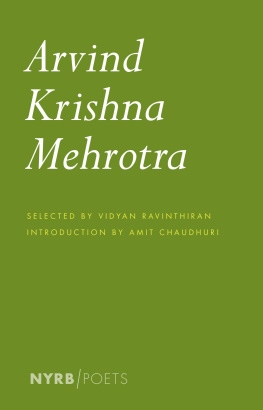

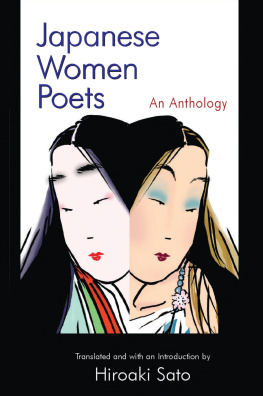
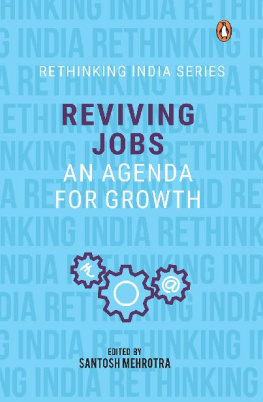
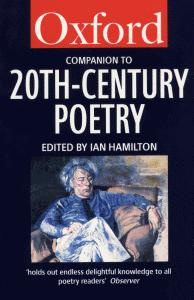

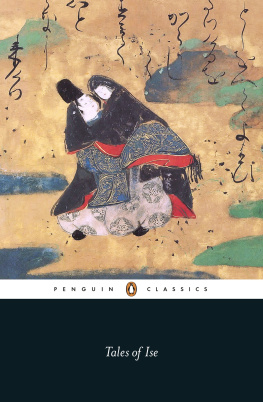
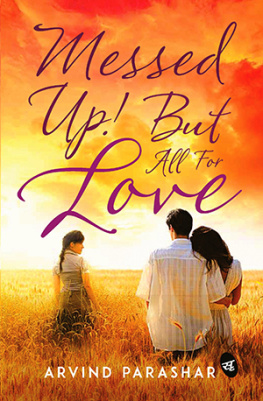
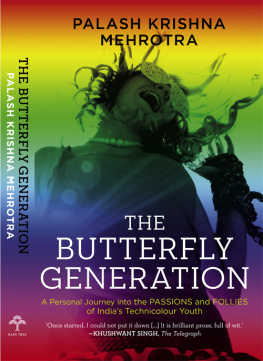
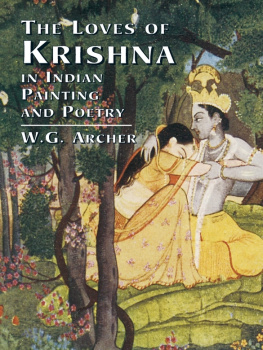


 NEW YORK REVIEW BOOKS New York
NEW YORK REVIEW BOOKS New York